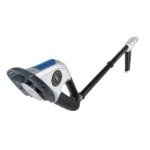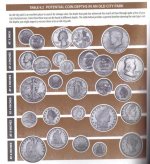I don't think anyone doubts that the person behind the detector is a major factor, but to believe a top of the line detector doesn't factor in is to believe there is no difference between a $50 detector and a $1,700 detector. I just don't believe that is the case. There are also too many variables involved to make it a simple call.
LOCATION:
Give a $50 detector to a novice and put them in a place where no detector has gone before, and chance are they would make some great finds. Put that novice in an area that gets hunted frequently, and chance are they will be very disappointed. We see that quite often. Take that same novice with a top of the line detector, and the chances increase quite a bit that they will make some good finds.
EXPERIENCE:
Give that veteran a $50 detector and put them in an area frequently hunted, and chance are they would be disappointed. Odds are better that they would make some finds, but in the end the detector is the weak link.
My experience I posted above is the perfect example. I had years on my old trusty detector, and was very sure that there was little I had missed. I had no experience on my new top of the line and it turned my old "hunted out" sites into new virgin territory in one day. All I'm trying to say is don't underestimate the value of a "better" detector. I did, and I learned a valuable lesson from it. I will now always know new technology WILL bring me more finds.
If you're fortunate enough to live in an area where any fair detector does you good, then I say great, but just remember this. Even that garden of eden will dry up over time as mind did, and then you'll need more than just experience. After 30 years of hunting our city park I can say with confidence, if you plan on coming to Dodge City and hunting my park, you had better bring more than experience.







